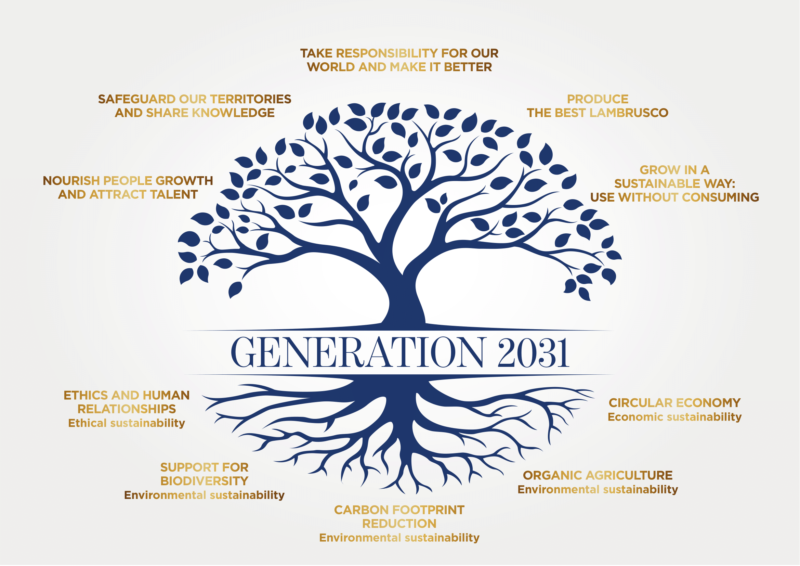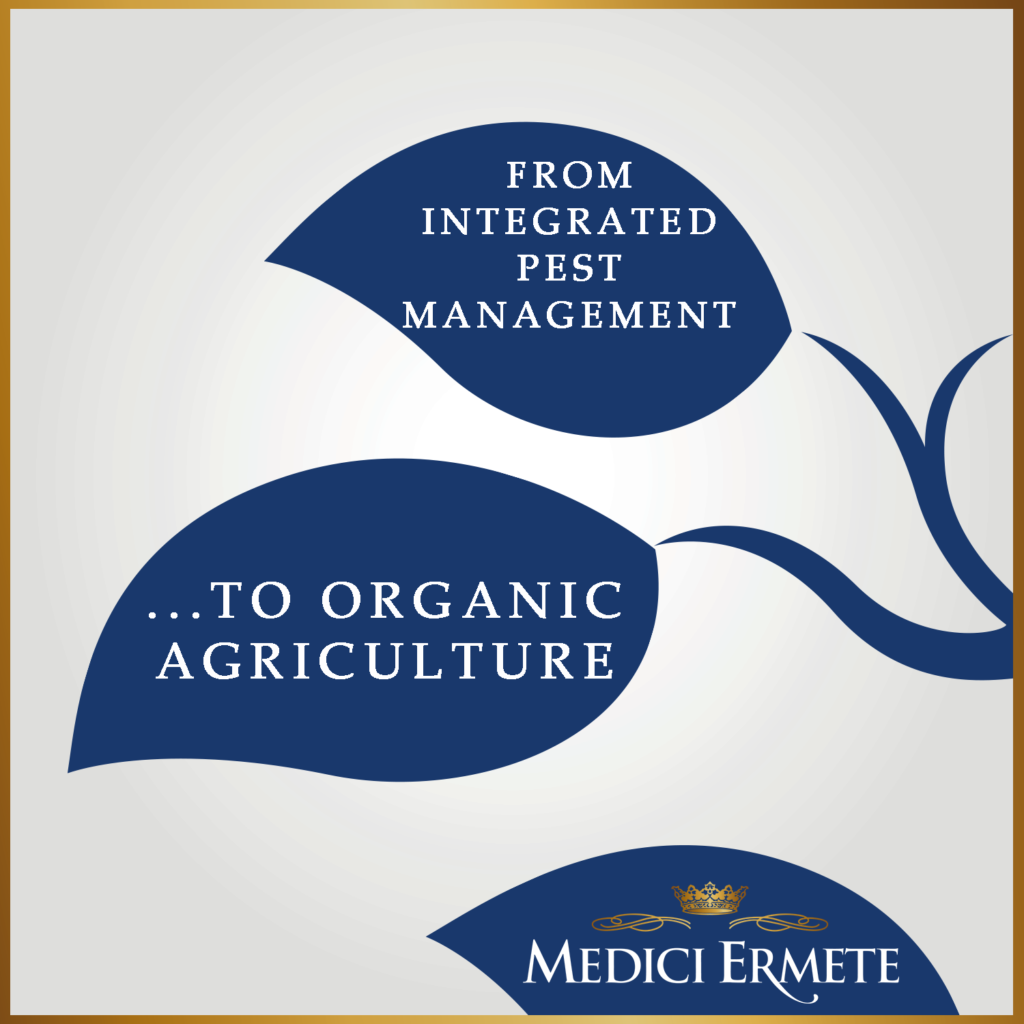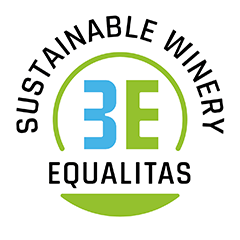Let’s get started on Generation 2031, our sustainability manifesto for the next 10 years.
Today we would like to go deeply on some concepts we have already mentioned in previous blog posts (which you can read by clicking here) and we want to do it starting from our origins.

The tree is the symbol of Generation 2031. The metaphor that comes from it represents our message to the world. In the roots of Medici Ermete are our values, our expertise and climbing upwards, with virtuous actions, we can get to see a luxuriant tree, full of leaves and healthy that is nothing but the symbol of our company that grows, improves and invests in a green future.
It is therefore appropriate to begin our journey by trying to understand how we arrived at the organic certification of Lambrusco Concerto and the conversion of all 80 hectares of vineyards. It was not a radical change of path, but the natural evolution of a viticulture that had already been on this path for years.
First of all, with the current regulations (at the moment Reg. (EC) 834/2007 is in force) to get to the organic certification si required a conversion period of at least 3 years and a series of strict controls by the certifying body. If, once the transition period has elapsed, all the verifications by the institution are positive, the certification will be released.
Medici Ermete has always had an important relationship with its land. We have always considered ourselves responsible winegrowers and we have always worked by pursuing the principles of sustainable integrated pest management.
Integrated pest management, from MIPAAF source (Ministry of Agricultural, Food and Forestry Policies), is described as that set of agricultural practices that aim at a lower environmental impact and towards the protection of human health. It provides for a reduction of interventions in the field in order to bring the vineyard into a condition of equilibrium.
It is a strategy that allows you to limit the damage caused by plant parasites using all the methods and techniques available in respect of the environment and health.
While traditional, scheduled viticulture aims at eliminating the damaging agent, integrated pest management aims to achieve a balance that is economically advantageous for the farmer and respectful of man and the environment. The exclusively chemical defense requires constant and increasingly frequent interventions due to its short-term effectiveness, increasing the risk of the appearance of target organisms no longer sensitive to the products used. On the contrary, the integrated struggle determines a progressive reduction of the interventions that will have the purpose of bringing our cultivation back to a state of equilibrium. The latter are decided on the basis of a careful calculation of costs, realizing an economic advantage in the long term determined both by a lower number of interventions and, very often, by a lower cost of the same.
Integrated pest management, unlike organic agriculture, however, does not have a certified regulation. MIPAAF has simply drawn up a manual with guides for the application of the general principles of integrated defense.
Our path towards certification therefore began when it became necessary for our company to certify the way we had been working for a lot of time. More and more customers and consumers are interested to konw more about the supply chain, the sustainability of companies and products. In addition, for the agri-food sector, an aggravating circumstance is added: we produce and sell something that is drunk every day, which goes our bodies.
In the coming weeks we will see how, in detail, we have equipped ourselves to obtain organic certification. From the abandonment of synthetic pesticides and fertilizers, to support for biodiversity and the circular economy. Keep following us!
KEEP READING



